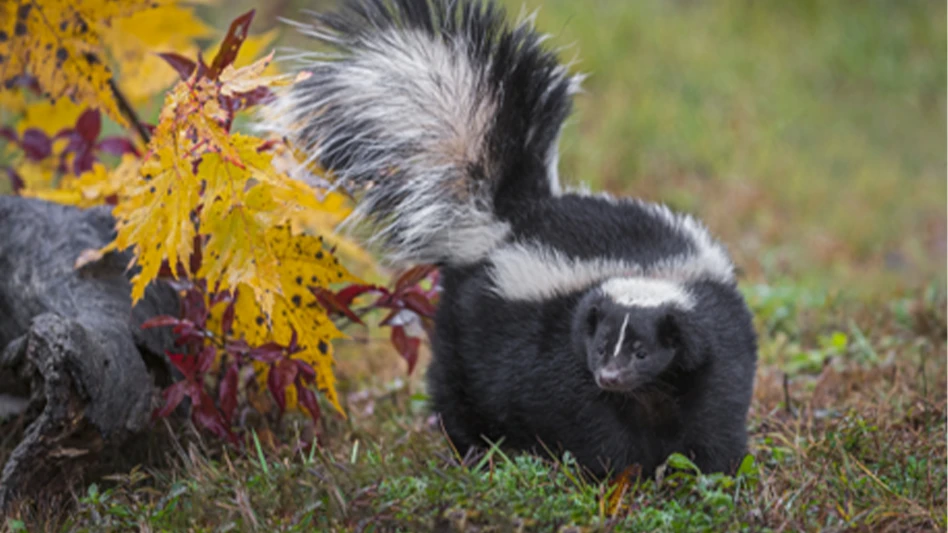Let’s say that you’re the CEO of a large food-processing company. With more than 240 processing plants, your firm connects crops and markets in more than 60 countries. Your facilities receive hundreds of grain shipments on any given day. Whether these shipments travel to a flour mill, or get loaded onto a Mississippi River barge before traveling to Indonesia, you need to ensure safety at every level.
With a food safety audit coming up in a few months, you need to hire a pest management company to help you pass with flying colors. Who ya gonna call?
One option is the Food Protection Alliance (FPA), a national coalition of 22 pest management companies across the United States. FPA members provide a range of services to clients, including food safety assessment, Integrated Pest Management, fumigation and alternatives to fumigation.
"The Food Protection Alliance covers anything from field to fork, from ports to inland plants," says Kalah Schmitz, FPA executive director. "We are food safety-focused pest management companies who will protect the product and brand name through the product’s lifecycle."
Formed in 2004, the FPA now covers 85 percent of the United States. Food is a global commodity in today’s world, flown and shipped everywhere. Lack of uniform safety protocols in foreign countries, costly recalls, growing consumer demand for food safety assurance and stalled government action are factors that led to the FPA’s timely formation.
"The concept of FPA allows national companies to receive consistent, high-quality service at each of their facilities by turning to one national group instead of each facility seeking out their own and taking a chance on the type of service they may receive," says Schmitz.
The Centers for Disease Control and Prevention (CDC) estimates that more than 325,000 hospitalizations and 5,000 deaths in the United States result from food-borne illnesses each year. "Commodities are being transferred all over the world. Having a group of service providers with a food safety focus and years of experience allows a company to have a ‘peace of mind’ that their brand name will be protected," Schmitz said.
Improving quality. Through firms’ affiliation with FPA, members bid on national contracts, share best practices, hold cross-trainings and pilot new technologies.
For Food Protection Services (FPS), located in Arkansas; St. Louis, Mo.; Kentucky; and Tacoma, Wash., FPA is an important source of lead generation. "The FPA refers business to us, and gives us a chance to bid on national programs," says John Mueller, owner/manager. "If a customer is pleased with our work and has a plant outside our service area, we’ll refer them to a member company."
The global economy demands that pest management companies that specialize in food safety have a broad geographic reach.
FPA members help food-processing companies to pass third-party food safety audits that are imposed by large retailers such as Walmart and Target. These types of high-stakes audits can have a huge impact on a company’s bottom line, says Mueller.
"If a food processor gets a poor score, they could lose tens of millions of dollars in business," he says. "There’s tremendous pressure to get it right." That’s all the more reason why it’s essential for PCOs to remain innovative, says Schmitz. "Brand protection is a priceless insurance that every company strives for and expects to receive.
The Leading Edge. FPA helps member companies to remain on the leading edge of the industry, and green technology is one example. FPA member companies are now using pheromones to disrupt insect mating in plants. Pheromones have a long-standing history in the pest control industry, yet it was only recently discovered that they could disrupt mating, she said. By using this technique, PCOs can head off an explosive outbreak, while also minimizing the environmental risk of exposing food to pesticides.
"Pheromone monitoring and mating disruption allows PCOs to be proactive on any type of possible outbreak and keep from a costly shut down," says Schmitz. "By using pheromones to disrupt their ability to reproduce, we reduce the risk of using pesticides on food products."
"With the multitude of connections and research that each of our members has contact with, we are constantly learning and reviewing new technologies for the industry," adds Schmitz.
This type of information sharing is relatively new for this marketplace. While FPA member companies had always been cordial with each other, they were also hesitant to share information — lest they give out carefully guarded trade secrets for free. FPA’s legal and organizational framework protects members, removing the risks of information sharing.
"Each FPA member has a distinct geographic territory, so there’s no fear of competition," says Schmitz. "We share and benefit from each other’s growth and contacts."
The Food Protection Alliance’s geographic reach also has helped to bring new technologies to the marketplace. Member companies now have the ability to provide portable services, for instance. In the past, each food-processing facility would have to purchase its own equipment — "something that companies have a hard time justifying if they only use it one time a year," says Schmitz.
"With all of the new technology that is out there for food safety, FPA assists in the experimentation process," she added.
The Future. Recently, FPA member companies gathered in New Orleans for the group’s annual conference. The week-long event focused on networking, training and information sharing — business practices now at the heart of members’ operations.
In today’s world, food-processing companies expect high standards of food safety, and will settle for nothing less, says Schmitz. FPA’s national reach — and reputation — helps to ensure that pest management companies remain on top of the food chain.
"For national companies, their demand and volume is larger than most and they can’t afford to settle for mediocre food safety service providers," says Schmitz. "That’s where the FPA and the members’ expertise and experience comes in."
When she’s looking for best practices, Schmitz says she looks for members to be proactive and have an open line of communication with their customer so they are able to provide the best service possible and be aware of any insect activity there may be.
The author is a freelance writer based in Cleveland, Ohio. E-mail him at lchilcote@giemedia.com.
*****
Food Protection Alliance Appoints New Director
Food Protection Alliance recently named Kalah Schmitz as the group’s new national executive director.
Schmitz has been involved with the Food Protection Alliance (FPA) since its inception in 2004. Throughout her involvement, she has assisted FPA with marketing in publications, press releases, tradeshows, and newsletters along with internal training for members.
Her new role includes coordinating FPA development under a new strategic plan resulting in an organization that is a recognized leader in the field of food safety through pest management and fumigation.
"We are pleased to announce Kalah as we feel she will add a dynamic role of providing support, information, and resources to the food industry as safety becomes more and more important," says Jeff Coleman of Research Fumigation Company.
To learn more about the Food Protection Alliance, visit www.fpalliance.com or contact Schmitz at 877/FPA-3334.

Explore the June 2011 Issue
Check out more from this issue and find your next story to read.
Latest from Pest Control Technology
- Pest Control Equipment: If it’s Critical, Back it Up!
- In Memoriam: Layton Word
- Mitchell Boston's Involvement as Local Councilman Sparks Growth in Pest Control Business
- Grizz Pest Management Owners Support Wildlife Conservation with Brookfield Zoo in Chicago
- Grizz Pest Management Partners with Brookfield Zoo to Build Tropical Forests Exhibit
- Truly Nolen Promotes Bohne to Vice President of Business Development
- Watch: Abell Pest Control Holds Snap Trap Challenge
- PMPs Encouraged to ‘Move at the Speed of Technology’ at Purdue Conference





